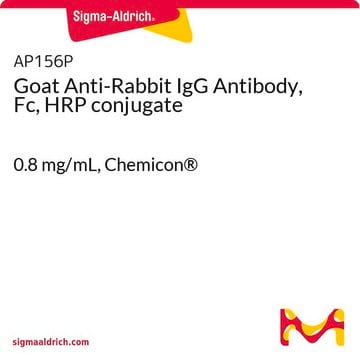24157
VOCOL® Capillary GC Column
L × I.D. 60 m × 0.32 mm, df 3.00 μm
Synonym(s):
F.S.CAP VOCOL® 60M 3.0UM .32MM
Sign Into View Organizational & Contract Pricing
All Photos(1)
About This Item
UNSPSC Code:
41115710
eCl@ss:
32119290
Recommended Products
material
fused silica
Quality Level
Agency
EPA TO-17,502.2,624,8015,8260,OLM04.2 VOA,524.2
NIOSH 1003
parameter
≤25-230 °C temperature (isothermal or programmed)
Beta value
27
df
3.00 μm
technique(s)
gas chromatography (GC): suitable
L × I.D.
60 m × 0.32 mm
application(s)
environmental
food and beverages
forensics and toxicology
industrial hygiene
column type
capillary intermediate polar
Looking for similar products? Visit Product Comparison Guide
General description
Application: This intermediate polarity column, designed for analyses of volatile organic compounds (VOCs), offers great retention and resolution of highly volatile compounds. Use this column in direct injection ports or coupled to purge and trap systems.
USP Code: None
Phase:
USP Code: None
Phase:
- Bonded
- Proprietary
- ≤0.32 mm I.D., <2 μm: Subambient to 250 °C (isothermal or programmed)
- ≤0.32 mm I.D., ≥2 μm: Subambient to 230 °C (isothermal or programmed)
- ≥0.53 mm I.D., <2 μm: Subambient to 250 °C (isothermal or programmed)
- ≥0.53 mm I.D., ≥2 μm: Subambient to 230 °C (isothermal or programmed)
Application
VOCOL® column (diphenyl dimethyl polysiloxane with crosslinking moieties) may be used for their relevancy to the purge-and-trap technique and GC/MS analysis of 34 volatile organics. It was also found suitable in being used for determination of volatile compounds by whole column cryotrapping.
Other Notes
We offer a variety of chromatography accessories including analytical syringes
Legal Information
VOCOL is a registered trademark of Merck KGaA, Darmstadt, Germany
Choose from one of the most recent versions:
Already Own This Product?
Find documentation for the products that you have recently purchased in the Document Library.
Determination of volatile compounds in water by purging directly to a capillary column with whole column cryotrapping.
Pankow JF and Rosen ME.
Environmental Science & Technology, 22 (4), 398-405 (1988)
Svante Granqvist et al.
Logopedics, phoniatrics, vocology, 40(3), 113-121 (2014-05-29)
Phonation into glass tubes ('resonance tubes'), keeping the free end of the tube in water, has been a frequently used voice therapy method in Finland and more recently also in other countries. The purpose of this exploratory study was to
Re: Bonilha HS, O'Shields M, Gerlach TT, Deliyski DD. Arytenoid adduction asymmetries in persons with and without voice disorders. Logoped Phoniatr Vocol. 2009 Aug 26:1-7. [E-pub ahead of print].
Gerhard Friedrich
Logopedics, phoniatrics, vocology, 35(3), 149-149 (2009-11-04)
Zuleica A Camargo et al.
Logopedics, phoniatrics, vocology, 38(4), 157-166 (2013-07-06)
In this phonetic study, productions of the consonant in the stressed syllable position of the word arara as produced by 13 subjects with short and/or anterior lingual frenulum were compared before and after lingual frenectomy. The results from the measurement
The effectiveness of phonological intervention in preschool children: a single-subject design study.
Nanna Palle et al.
Logopedics, phoniatrics, vocology, 39(1), 19-29 (2012-11-30)
The purpose was to investigate an intervention model for treating preschool children with phonological processes. Six children, three girls and three boys, between 4y 1m and 5y 7m, with similar developmental phonological disorder (PD) received an individually adjusted intervention including
Our team of scientists has experience in all areas of research including Life Science, Material Science, Chemical Synthesis, Chromatography, Analytical and many others.
Contact Technical Service




